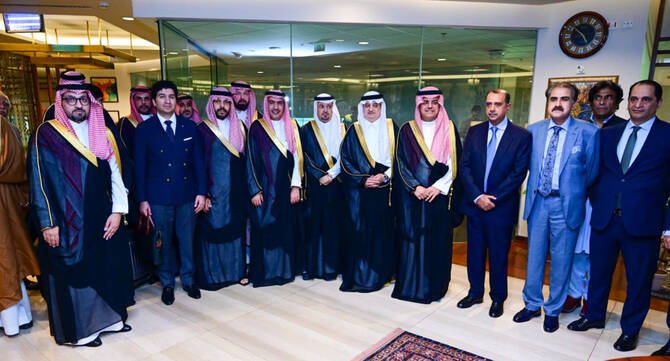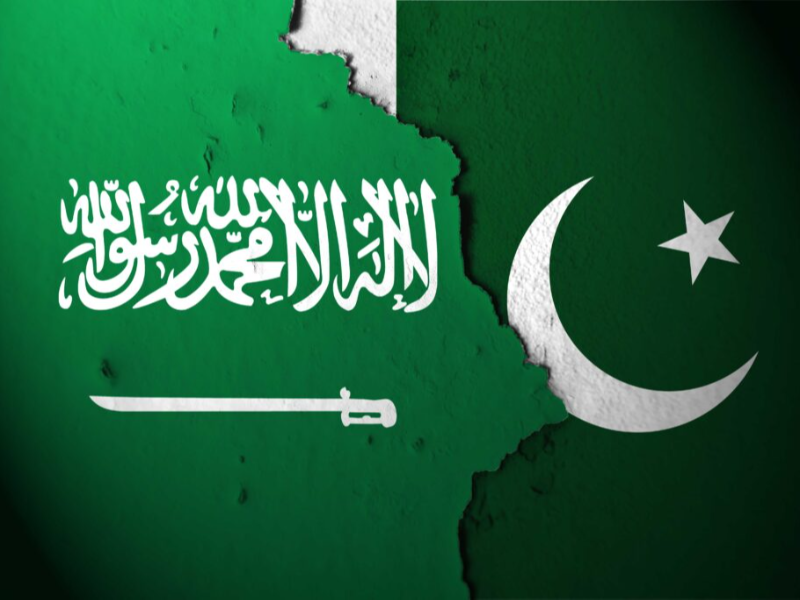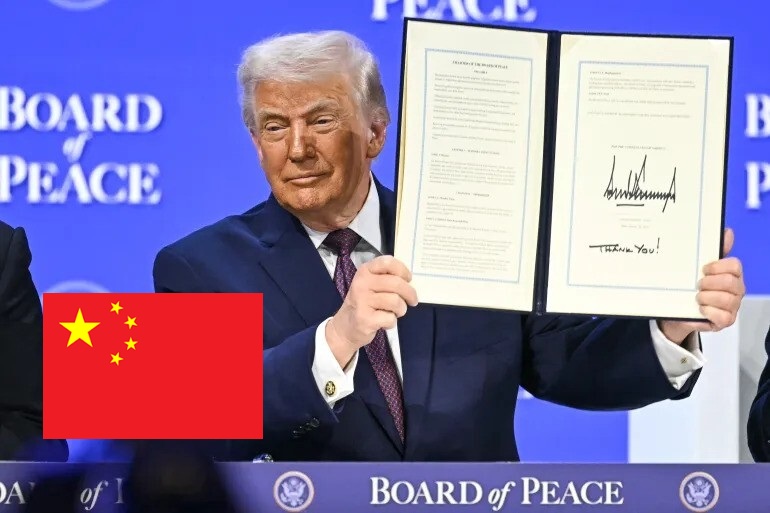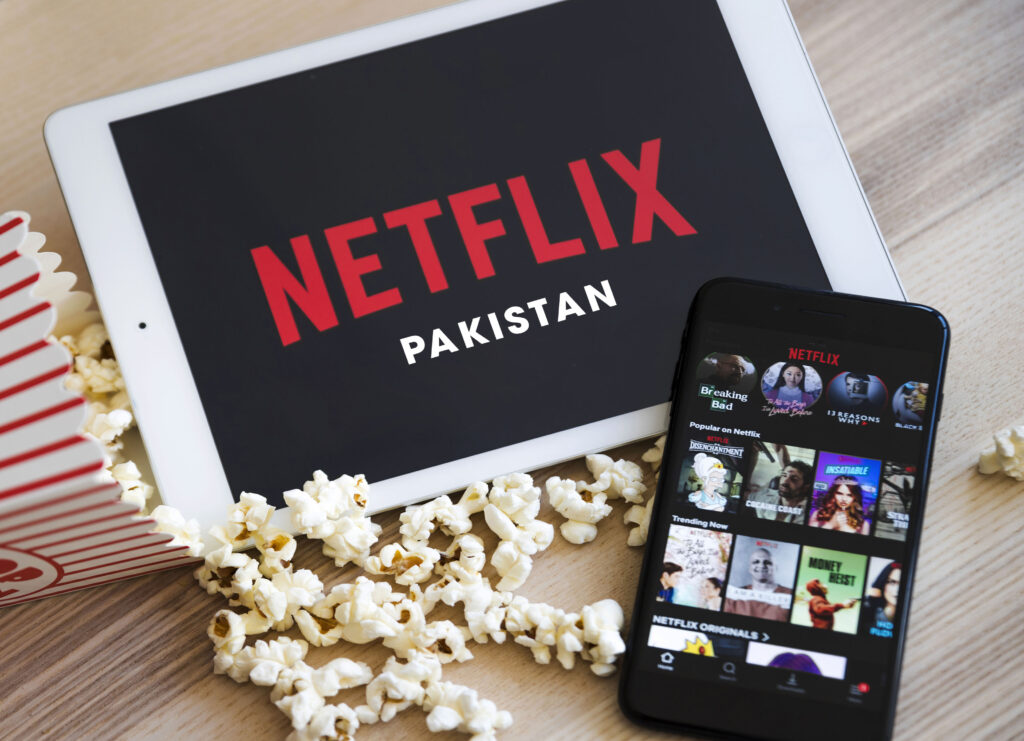The Government of Pakistan, along with leading private firms, has unveiled around 40 mega investment projects worth over $28 billion to a visiting Saudi delegation during the Pakistan–Saudi Joint Business Council meeting in Islamabad.
The Saudi delegation, led by Prince Mansour bin Mohammad Al Saud, met top Pakistani ministers, business leaders, and the SIFC team to explore bilateral trade and investment opportunities.
Under the banner “Opportunity Pipeline,” Pakistan highlighted priority sectors including energy, mining, IT and telecom, agriculture, tourism, logistics, industry, and privatization — all designed to attract foreign direct investment and accelerate economic growth.
💰 Major Projects on Offer
Pakistan presented a diverse and ambitious portfolio to Saudi investors, featuring:
-
🏭 Greenfield refinery – $10 billion new refinery project
-
⚙️ Brownfield refinery upgrade – $2.1 billion modernization plan
-
🔩 Integrated steel plant – $1.8 billion project
-
💧 Diamer-Bhasha Dam – hydroelectric power generation initiative
-
🧪 Naphtha cracker complex – $5 billion facility to boost petrochemical self-sufficiency
In addition, projects worth billions were proposed in transport infrastructure, including motorways M6, M10, and M13, along with pharmaceutical production units, LPG storage terminals, agro-processing industries, shrimp and meat supply chains, vaccine manufacturing, and mixed-use luxury developments.
The government also expressed readiness for Public-Private Partnerships (PPPs) and joint co-investments with Saudi partners to ensure long-term sustainability.
🌍 Economic and Strategic Importance

The initiative arrives at a defining moment for Pakistan’s economy. As the country navigates IMF reforms and fiscal challenges, attracting foreign capital has become essential.
Saudi Arabia’s role is already pivotal — with over $9 billion annual remittances from Pakistani workers and financial support through oil on deferred payments and deposits in Pakistan’s central bank.
For Riyadh, these projects complement Vision 2030, its strategic plan to diversify away from oil dependency. Investing in Pakistan offers industrial footholds, access to a young labor force, and expanding regional markets.
For Islamabad, the partnership could:
-
🔹 Bridge the infrastructure investment gap
-
🔹 Create thousands of jobs and stimulate local supply chains
-
🔹 Strengthen exports and reduce import dependency
-
🔹 Ease foreign exchange pressure and stabilize the rupee
⚠️ Challenges and Risks
Turning $28 billion in proposals into reality will not be easy. The main challenges include:
-
Due diligence and feasibility studies for each project’s technical and financial viability
-
Policy consistency and governance reforms to retain investor confidence
-
Political and macroeconomic stability to reduce country risk perception
-
Execution capacity at both federal and provincial levels
-
Regulatory and environmental clearances for large-scale infrastructure and industrial projects
Despite these hurdles, officials remain confident that the new investment framework under SIFC will provide a “single-window facilitation system” to remove bureaucratic bottlenecks.
🏗️ From MoUs to Groundbreaking
Authorities have confirmed that several MoUs and project agreements are expected to be signed soon — possibly during a follow-up investment forum in Riyadh on October 25–26, 2025.
Out of 34 MoUs worth $2.8 billion signed last year, 16 projects have already entered the implementation phase. The government now aims to ensure that the new round of agreements moves even faster, backed by stronger institutional mechanisms and legal guarantees.
SIFC officials stress that the upcoming projects will not remain on paper. The focus is on practical, shovel-ready investments with clear ownership and transparency.
🤝 A Broader Regional Dimension
This economic cooperation follows renewed defense and security collaborations between Islamabad and Riyadh. The deepening partnership indicates Pakistan’s broader effort to transform its strategic relations with Saudi Arabia — moving from traditional military alignment to comprehensive economic integration.
Regional analysts believe this growing partnership could reshape South Asia–Middle East relations, allowing Pakistan to balance regional dependencies while offering Saudi Arabia a new hub for industrial and logistics investment.
🔎 What to Watch Next
As developments unfold, observers will be tracking:
-
Which of the 40 proposed projects are prioritized
-
How financing is structured (equity, debt, or PPP models)
-
The role of Saudi sovereign funds and private capital
-
Progress in regulatory and institutional reforms
-
The speed of implementation post-agreement
If even a fraction of these plans materialize, Pakistan could witness a transformational shift in its economic structure over the next decade.
🏁 Conclusion
Pakistan’s presentation of $28 billion in investment projects to Saudi investors marks a defining step in regional economic diplomacy. Beyond the numbers, it represents a strategic vision for sustainable growth and long-term stability.
However, success depends on more than MoUs — it requires policy discipline, governance reforms, and credible execution. If both nations follow through, this initiative could set the stage for a new era of Pakistan–Saudi economic partnership, aligning with regional progress and global investment trends.
Czechangez Khan Jadoon is a senior journalist based in Islamabad.



